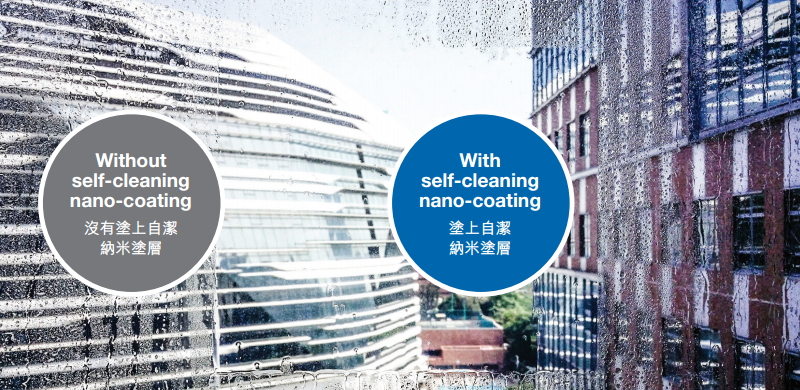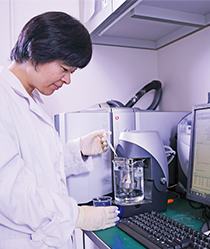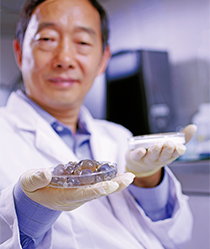
The glass with and without self-cleaning nano-coating shows significant difference.
A low-cost self-cleaning nano-coating can keep curtain walls clean and durable through photocatalysis.
Window washing is always considered a strenuous exercise associated with the danger of falling. Imagine how painstaking it is to clean the windows of a 50-plus-storey skyscraper with a squeegee and a bucket of soapy water. It is no wonder that window-washing services are costly. Now thanks to a PolyU invention, dirt on windows can be effortlessly rinsed off with water or rain.
Conventional self-cleaning glass curtain walls use chemical vapour deposition or sputtering technologies. These thin-film technologies require a high vacuum or intense heat, which are costly and thus not widely used. Led by Prof. Yang Hong-xing and Dr Lu Lin at the Department of Building Services Engineering, a research team recently developed a cost-effective, self-cleaning nano-coating for curtain walls.
The coating can simply be silk-screened onto the glass at room temperature and atmospheric pressure. With its super-hydrophilic character and thicker paste, the coating shows superior cleaning performance and a potent photocatalytic property. Under photocatalysis, organic dirt is dissolved. It spreads out water nicely and brushes away inorganic dust on the surface along with rain.
Prof. Yang explained, “To make the self-cleaning coating clear, we reduced its particle size to the nano order (about 5 nm), which is much smaller than the wavelength of visible light, to preclude the Rayleigh scattering effect.” Better still, as a water-based composite paste, the nano-coating is environmentally safe, containing only trace amounts of volatile organic compounds and no heavy metals.
In addition, the coating can withstand higher temperatures than glass. After application and tempering, it forms a robust and durable layer that resists scratching. Under normal usage, it will last for more than 20 years. Apart from curtain walls, mirrors and glass windows, the coating can be readily applied to photovoltaic cells and stainless steel surfaces, which will benefit most from its self-cleaning property. ♦


